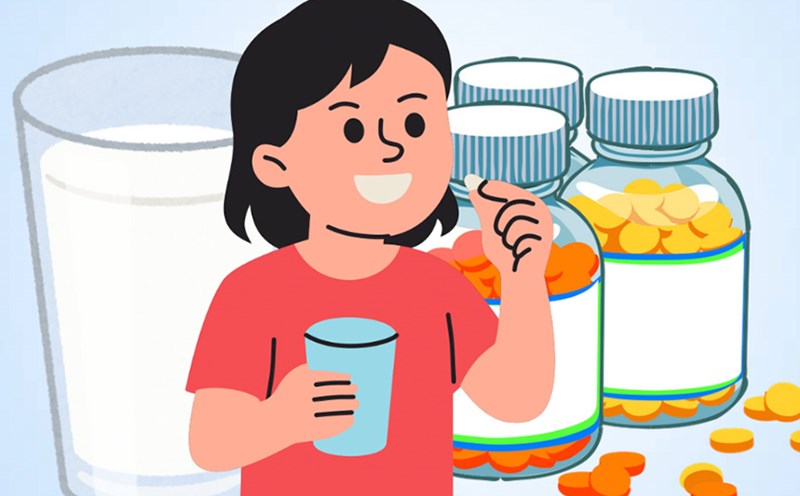According to Dr. J. Saravanan, senior gastroenterologist at VS Hospital, Chennai, India, even with a full diet, the body sometimes lacks some essential nutrients. At this time, supplements including vitamins, minerals, fatty acids, proteins or herbs can help fill nutritional gaps and support health. However, improper use can cause side effects or reduce absorption efficiency.
Time to take supplements
Dr. Saravanan says that vitamins A, D, E and K are best taken with fatty meals, and should be taken at breakfast or lunch. Vitamin C and B vitamins can be taken at any time, usually in the morning. Iron phenols should be taken on an empty stomach with a little fruit or juice to increase absorption, while calcium is better absorbed when taken in the evening.
Popular supplements
Vitamins and minerals: A, C, D, E, K, group B, calcium, iron, zinc.
Essential fatty acids: Omega-3, omega-3, omega 9..
Protein: Whey, plant protein, casein.
Sports support: Creatine, beta-alanine, BCAA.
Good for digestion: Probiotics, enzymes, fiber.
Support bones and joints: Calcium, vitamin D, essential minerals.
Support the brain: Omega-3, B vitamins, antioxidants.
How to supplement properly
Nature foods are always a top priority, Dr Saravanan emphasizes. Supplements only play a role in filling nutritional gaps".
He recommends:
Check your diet and get a blood test before taking.
Start with a low dose, taken after meals.
Do not drink multiple sources at the same time to avoid interaction or reduce absorption.
Consult your doctor or nutritionist before using.
Benefits of supplements
Improve overall health.
Supports digestion, bones and joints, brain.
Improve physical performance.
Supports weight loss and energy maintenance.
Possible side effects
Using it incorrectly can cause digestive reactions and other health problems:
Nausea, shortness of breath, diarrhea.
Headache, constipation, sleepiness.
Damage to the liver, kidneys or nervous system.
Reduced bone strength, affecting other medications.
The information in the article is for reference only, not a replacement for medical diagnosis or treatment. You should talk directly to your doctor for accurate advice that is suitable for your health condition.











